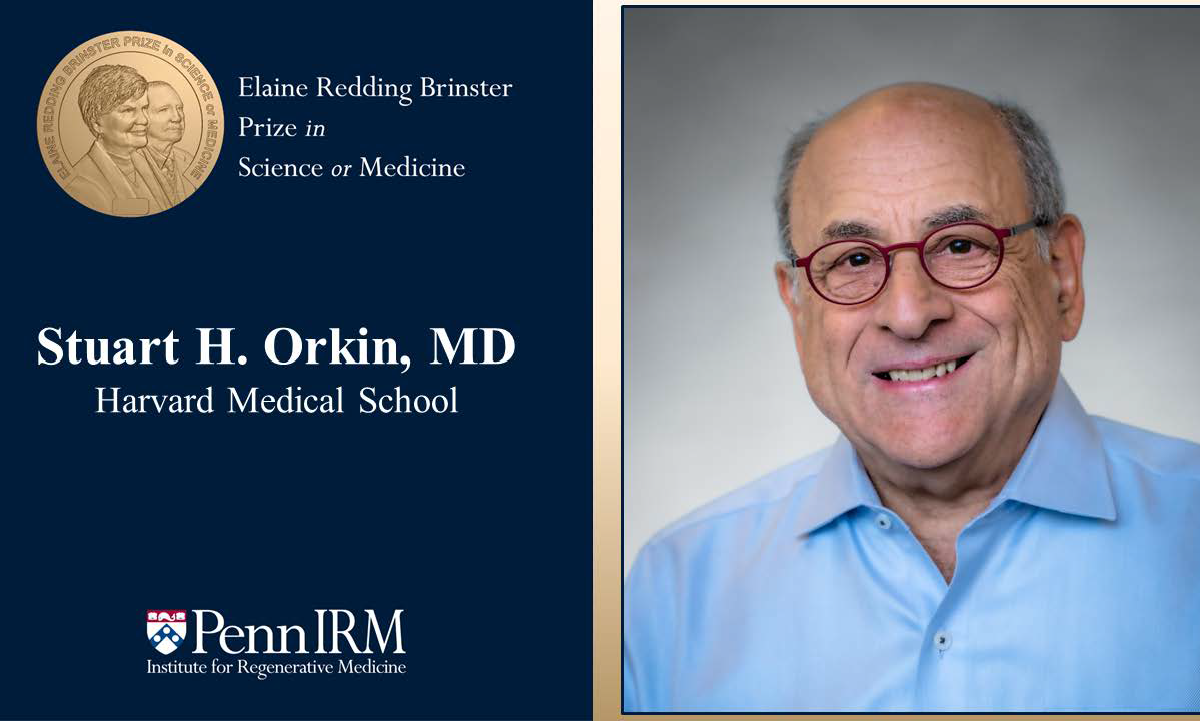Recognized for landmark discoveries of the molecular basis of blood disorders and using the basic science findings for therapeutic approaches, the Institute for Regenerative Medicine at the University of Pennsylvania has awarded Stuart H. Orkin, MD the third Elaine Redding Brinster Prize in Science or Medicine. He elucidated the mechanism controlling the switch from fetal to adult hemoglobin, and reduced to practice reactivation of fetal hemoglobin as a therapeutic strategy for sickle cell disease and other blood cell disorders.
“Dr. Orkin has beautifully illustrated how a career of basic science investigation into the mechanisms for gene regulation can be applied, in one’s own laboratory, to a method for combating devastating human diseases. Notably, his discovery of unexpected details in how the fetal hemoglobin gene is regulated suggested insights for a therapy, for which he availed of the latest gene editing technologies to develop a specific clinical application for sickle cell disease,” said Ken Zaret, PhD, director of Penn’s Institute for Regenerative Medicine and the Joseph Leidy Professor of Cell and Developmental Biology in the Perelman School of Medicine. “We are thrilled that Dr. Orkin is the third awardee of the Elaine Redding Brinster Prize.”
The prize, supported by an endowment from the children of Elaine Redding Brinster, is awarded annually to a researcher whose singular discovery has made a unique impact on biomedicine. Each winner receives $100,000, a commemorative medal, and an invitation to present a ceremonial lecture at the University of Pennsylvania.
Orkin will accept the prize March 13, 2024, as part of the day-long Ralph L. Brinster Symposium. The symposium will feature several eminent speakers from across the biomedical sciences, including Titia de Lange, PhD, of the Rockefeller University; Carla Shatz, PhD, of Stanford University; Alejandro Sànchez Alvarado, PhD, of the Stowers Institute for Medical Research; and Marianne Bronner, PhD, of the California Institute of Technology.
Read more in Penn Medicine News




